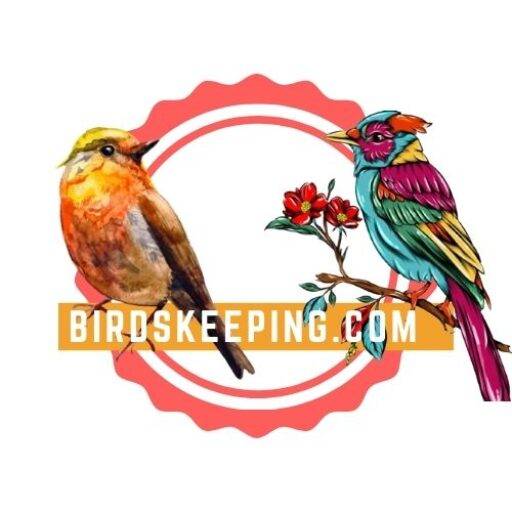Baby lovebirds’ diet consists of selective foods that they can easily consume, but they are not capable of eating foods like an adult, or mature lovebirds can eat. While mature lovebirds can eat fruits, there is a concern regarding feeding fruits to baby lovebirds. Can baby lovebirds eat fruit?
Baby lovebirds can eat fruit whenever they get a chance to eat. The nutrients present in fruits provide health benefits to the bay lovebirds and add value to the growth of baby lovebirds.
Table of Contents:
- Are Fruits Safe For Baby Lovebirds?
- When Can Baby Lovebirds Start Eating Fruits?
- What Fruits Can Baby Lovebirds Eat?
- How To Feed Fruits To Baby Lovebirds?
- How Often & How Much To Feed Baby Lovebirds Fruits?
- Can Baby Lovebirds Eat Bananas?
- Last Words
Are Fruits Safe For Baby Lovebirds?
Yes, fruits are safe for baby lovebirds. Fruits are one of the healthiest, most nutritious foods for birds of any age. It is important to feed your baby lovebird a varied diet to promote proper growth and development.

Fruits provide high-energy calories for birds, which helps them maintain their weight and strength while providing valuable micronutrients that contribute to many different biological functions in the bird’s body.
They also contain antioxidants that help fight free radicals in the body of a bird, lowering their risk for disease and promoting recovery post-injury or illness.
When Can Baby Lovebirds Start Eating Fruits?
Baby lovebirds can start eating fruits when they are about three weeks old. Some good fruits for baby lovebirds are strawberries, apples, and watermelon.
Make sure they only eat the seeds. Careful with grapes because there is a chance that they could react to them and want to throw up, which is bad for their digestive system.
Can Lovebbirds Eat Bananas?
What Fruits Can Baby Lovebirds Eat?
Some fruits that baby lovebirds can eat are listed below:
- Apples
- Apricots
- Strawberries
- Peaches
- Pears
- Raisins
Pears contain minerals such as potassium and copper.
- Blueberries
Blueberries are high in vitamins A, B1, B2, B6, and C, and they also provide fiber and antioxidants.
- Blackberries
Blackberries have a lot of antioxidants, and they help fight disease prevention of cancer.
- Avocado
Plantains, avocados, and mangoes are extremely high in fiber and contain many vitamins and minerals.
- Raspberries
Avocado contains high amounts of folate, potassium, and avocados. High-fat content helps protect the heart from the disease more than unsaturated fats found in olive oil, canola oil, or butter.
- Grapes
Grapes are a good source of fiber; although they are high in sugar, they are very good for people on low-calorie diets.
- Peanuts
Peanuts contain nine essential amino acids, making them a great source of protein. They also provide calcium and magnesium.
Lovebirds are not so keen on fruit plain, and they can be fussy eaters in general, but these fruits will work nicely, and thanks to their natural sweetness and juice, they will not seem too bland.
Give your lovebird a simple, fresh fruit dish with just a few of the most popular ones listed here every day, and you will stand a good chance of winning over your picky feathered friend.
How To Feed Fruits To Baby Lovebirds?
Different methods are used to feed fruits to baby lovebirds. It is important to get all the nutrients they need, so get them a wide variety of food.
It is especially important for baby lovebirds who are used to eating natural foods in the wild. You can find great fruits at grocery stores. Some of the methods that you can follow to serve fruits to baby lovebirds are below.
- Feed them directly from a fruit bowl, with or without water.
- Give them feeder insects too.
- Please provide them with a colorful hanging container.
- Set up the bird feeder in their cage.
- Feedings can be at different times: morning, noon, and evening (make sure your lovebirds are not tempted to eat those foods you do not want them eating).
- Always check what they are eating (and prevent them from eating things they should not).
How Often & How Much To Feed Baby Lovebirds Fruits?
Lovebirds are generally healthy creatures and eat any fruit you put in the cage. It is important to ensure that they have an ample supply of fresh vegetables and protein, but you could technically feed them fruit for their entire lives and never worry about it.
Baby lovebirds can eat different types of fruits daily. The one caveat is that fruits like bananas can spoil and become moldy and moldy food (plus the seeds) can give your lovebirds diarrhea, which is not fun for anyone.
So I suggest you offer dry seeds to your birds in addition to fruit, so they always have something to eat when the fruit goes bad.
Baby lovebirds can eat different types of fruits daily. Here are a few things to keep in mind when feeding baby lovebirds fruits.
If your lovebird is a healthy 2 to 3-week-old, you can feed them small pieces of melon, peaches, figs, bananas, and papaya. Offer about 3 grams of fruit for each ounce of weight.
When you introduce fruits to the diet, it should be done gradually so the digestive system can fully adjust. It means giving a treat every other day for a month before you start giving all treats once per week.
Can Baby Lovebirds Eat Bananas?
Yes, it is safe to feed baby lovebirds bananas. Bananas are good food because they provide the energy and natural sugars that baby birds need to grow properly.
This fruit also has plenty of potassium, calcium, vitamins B6 and C, and many other nutrients necessary for health.
Last Words
Fruits are very beneficial for birds to get nutrients, and baby lovebirds can eat fruit which is also beneficial for them. Before feeding them with fruits, ensure to feed them specific fruits as they reach a certain age and do not overfeed them with fruits.
Birdskeeping is supported by its readers. When you purchase through links on our site, we may earn an affiliate commission. Also, as an Amazon affiliate, we earn from qualifying purchases without costing you extra.
